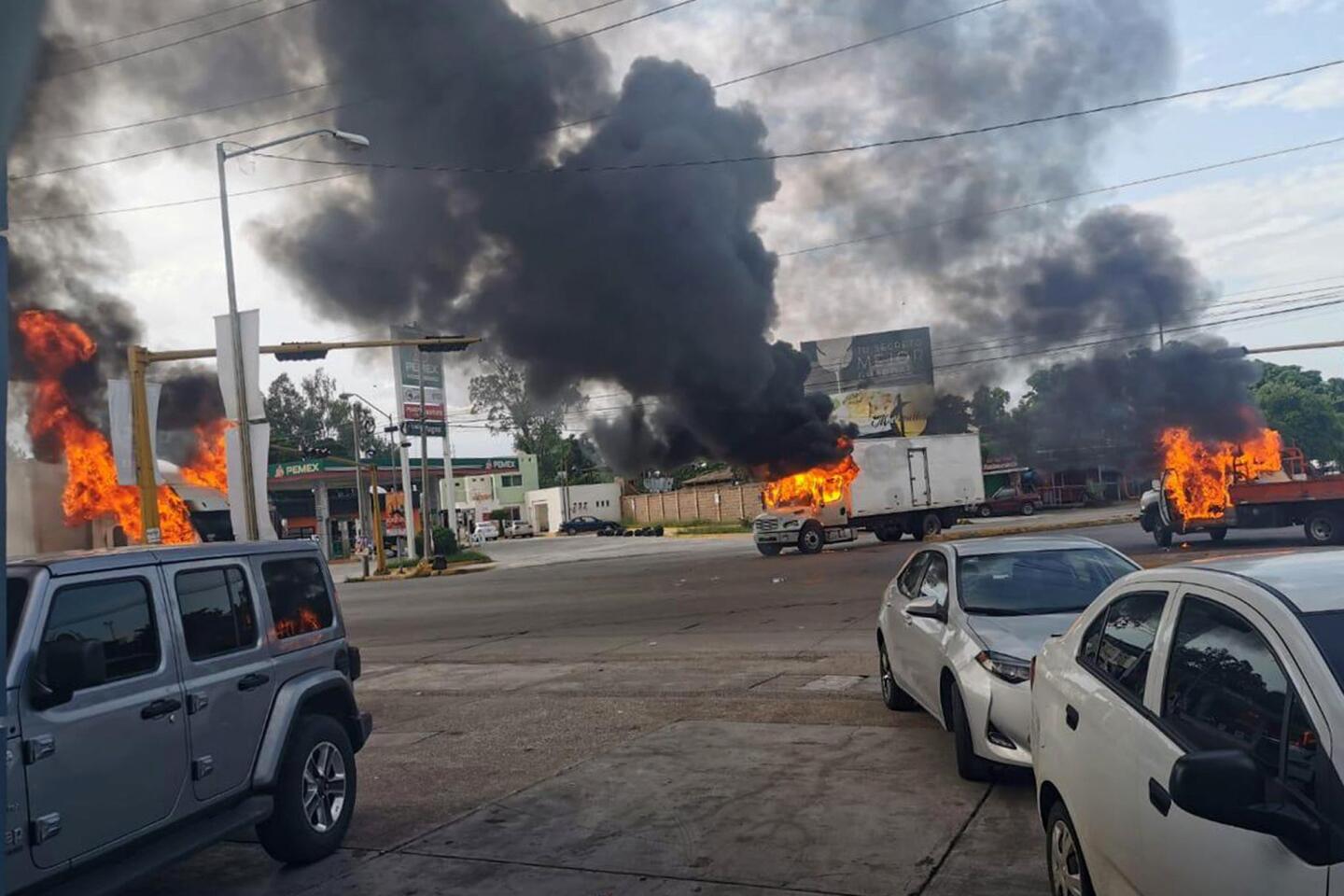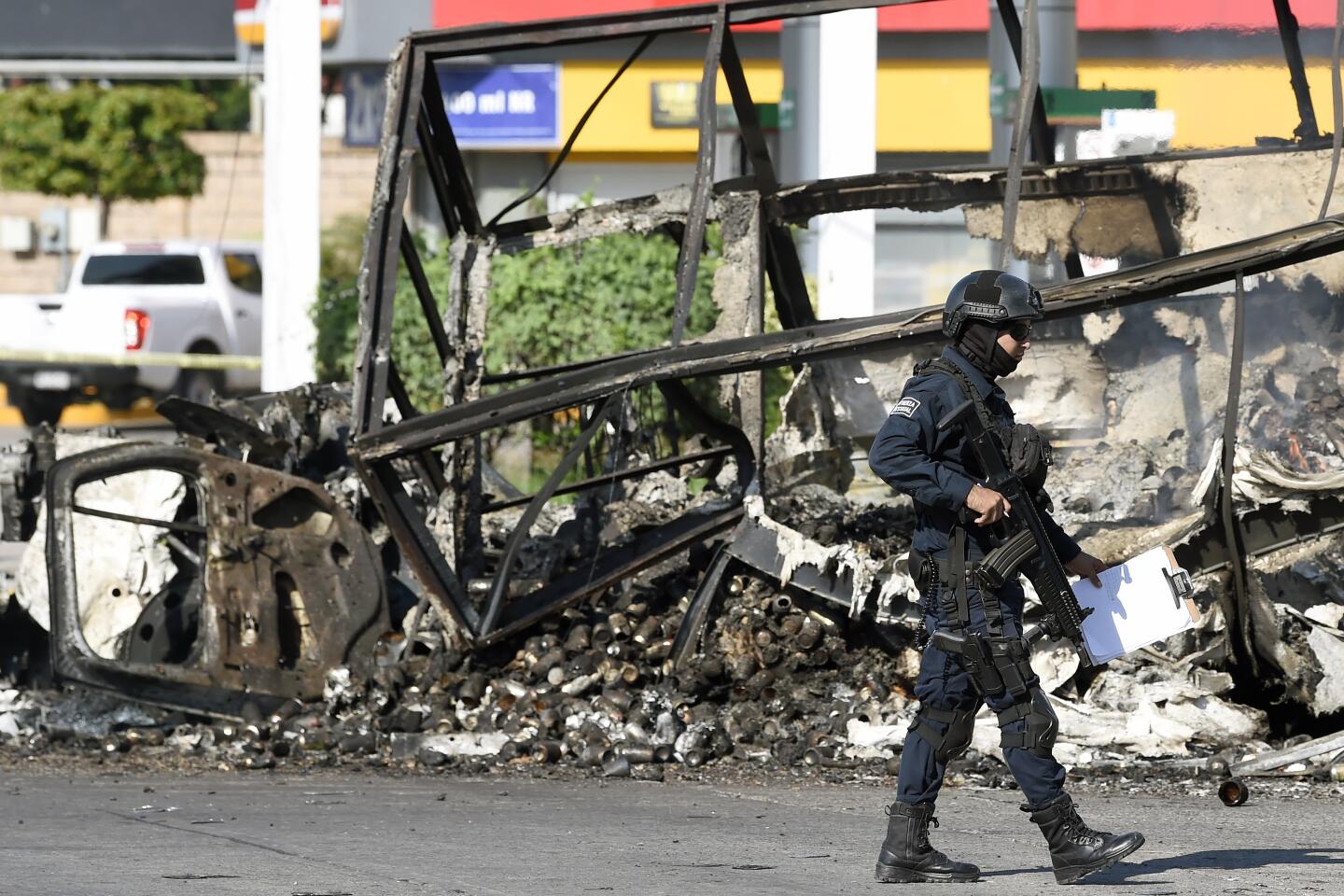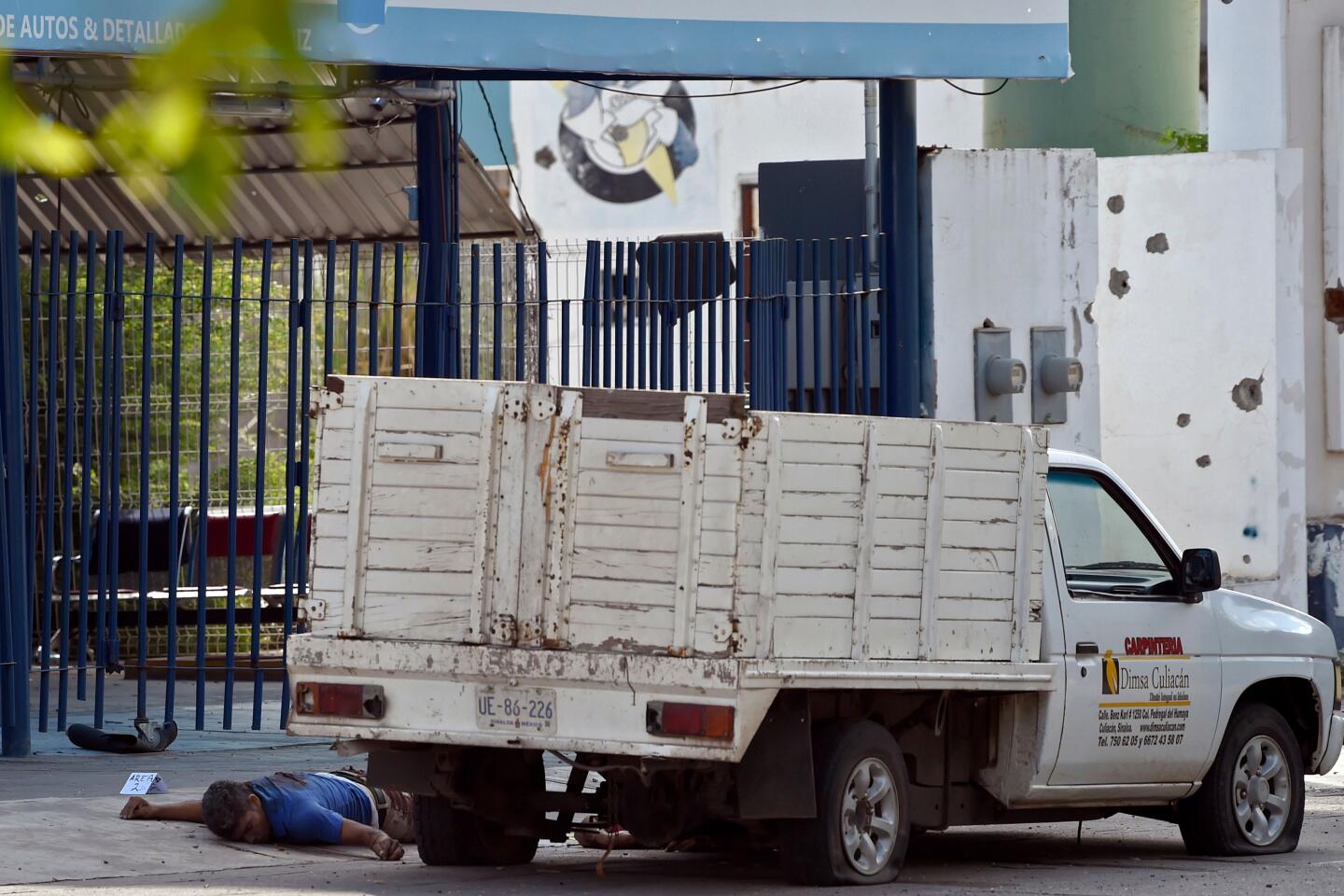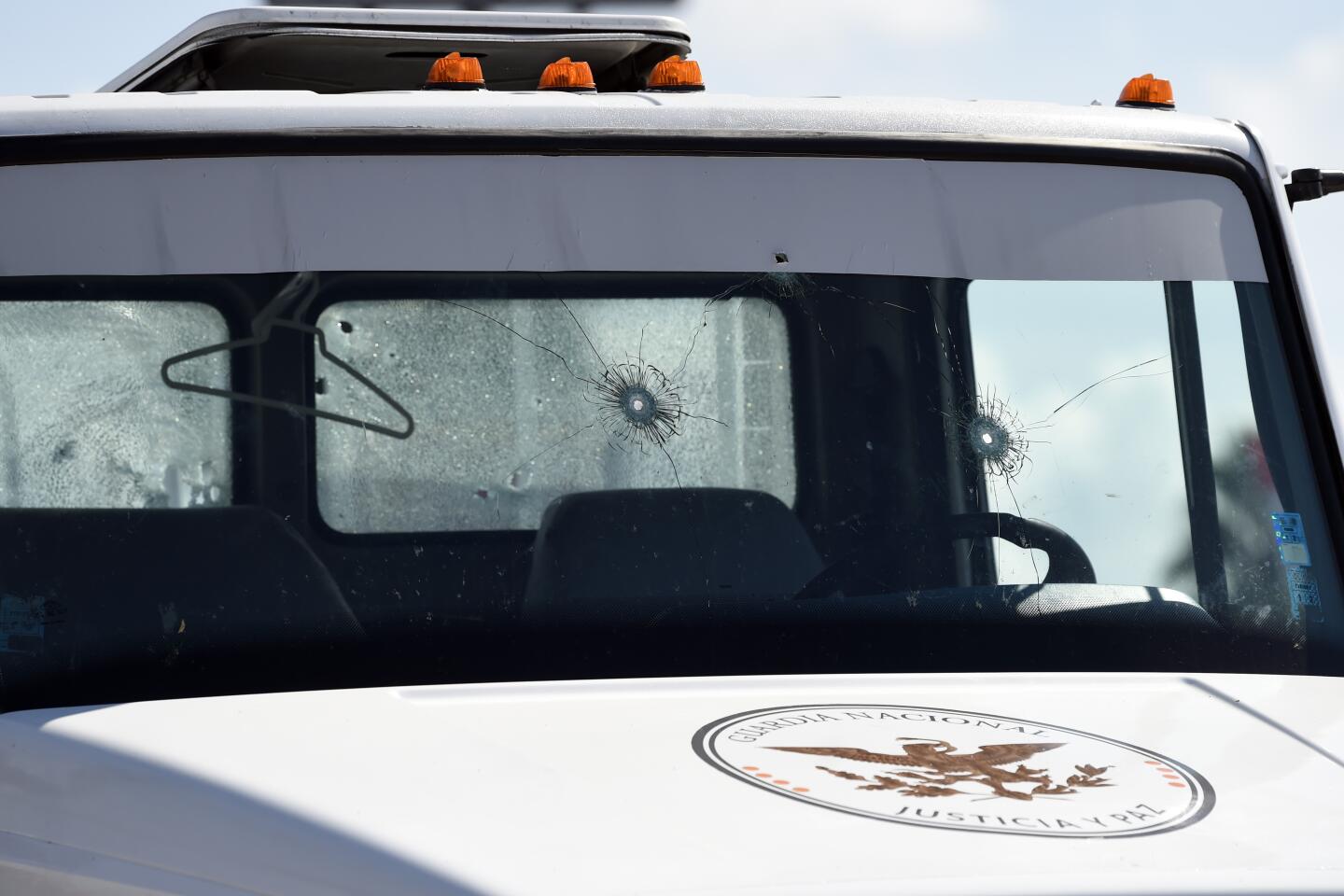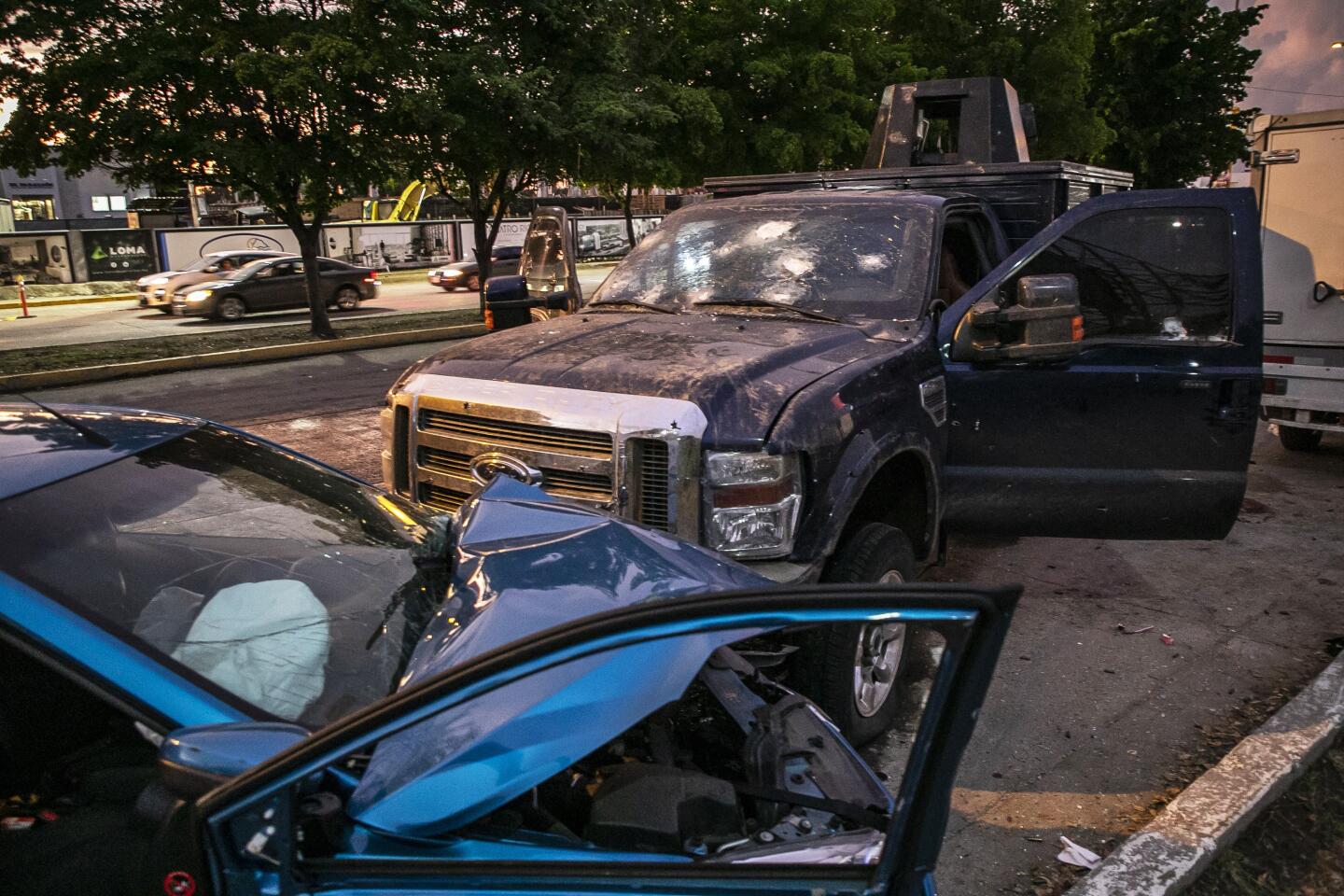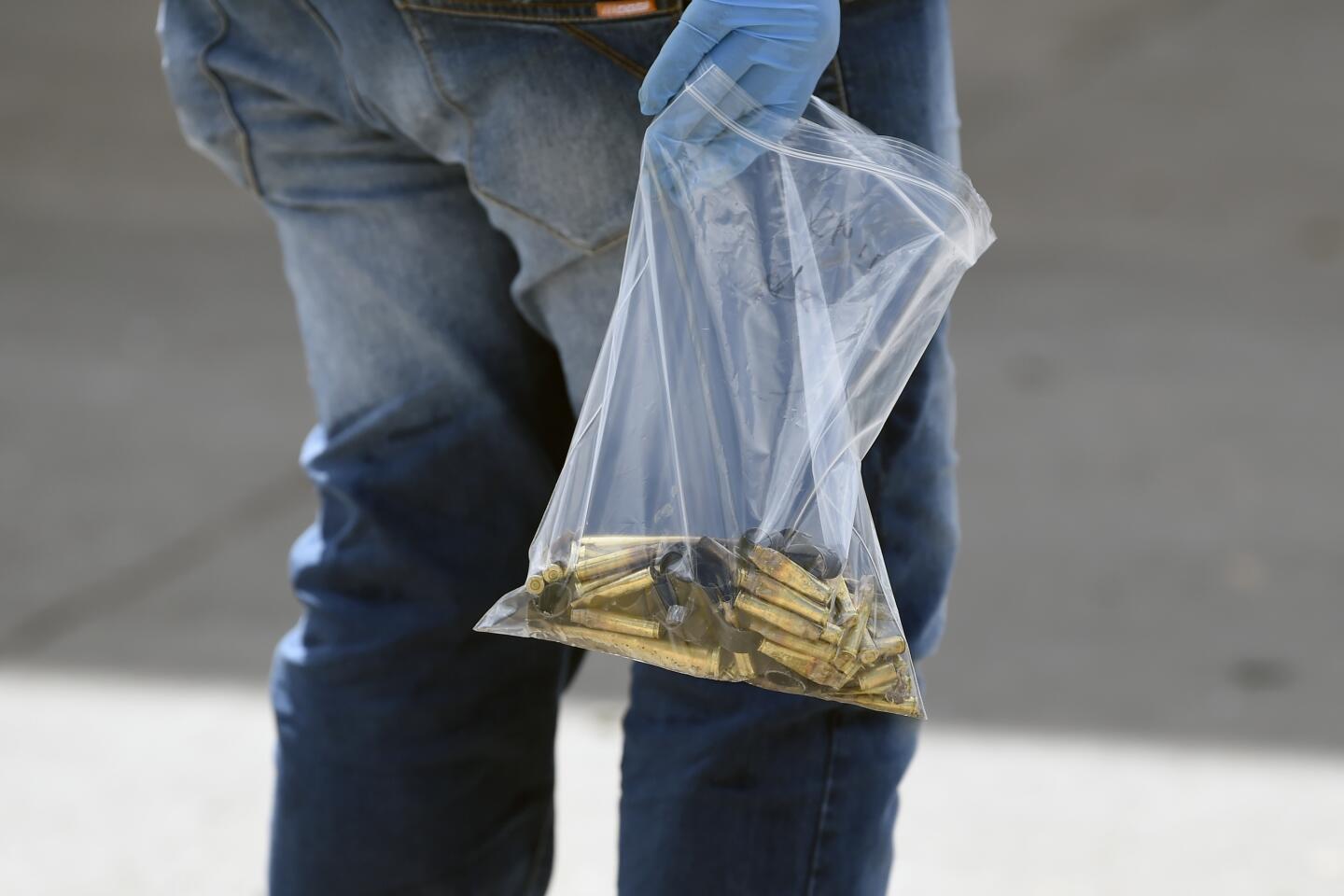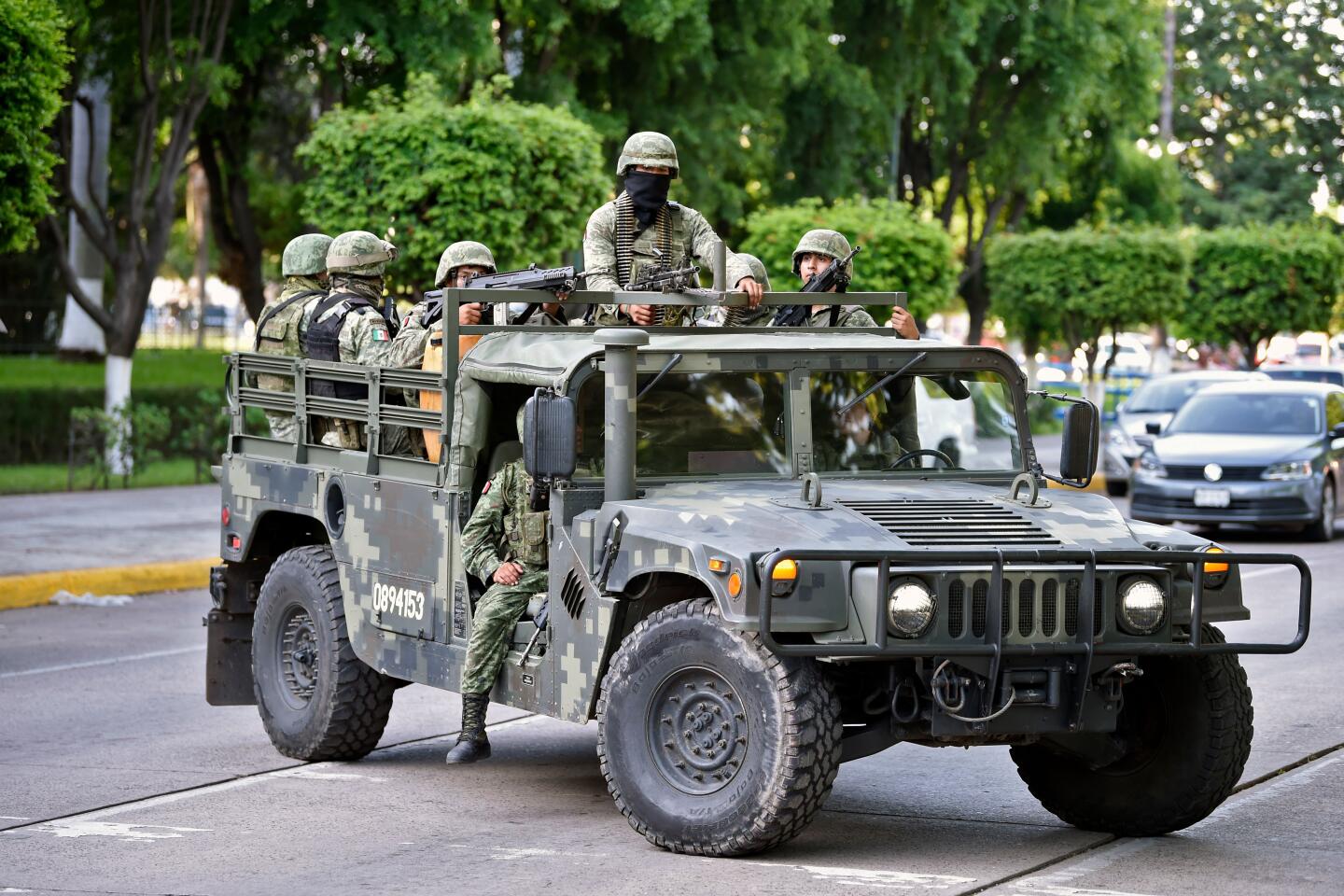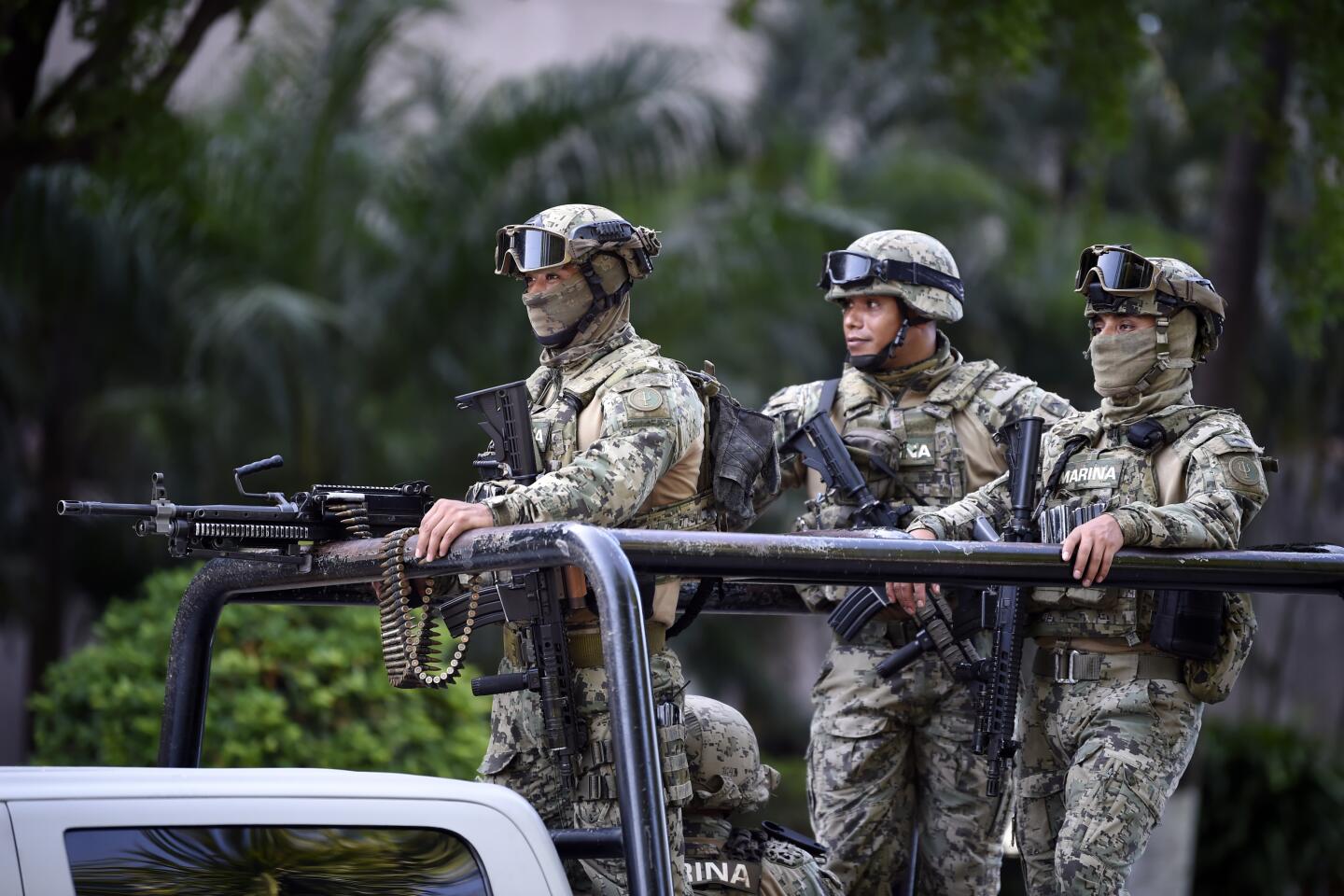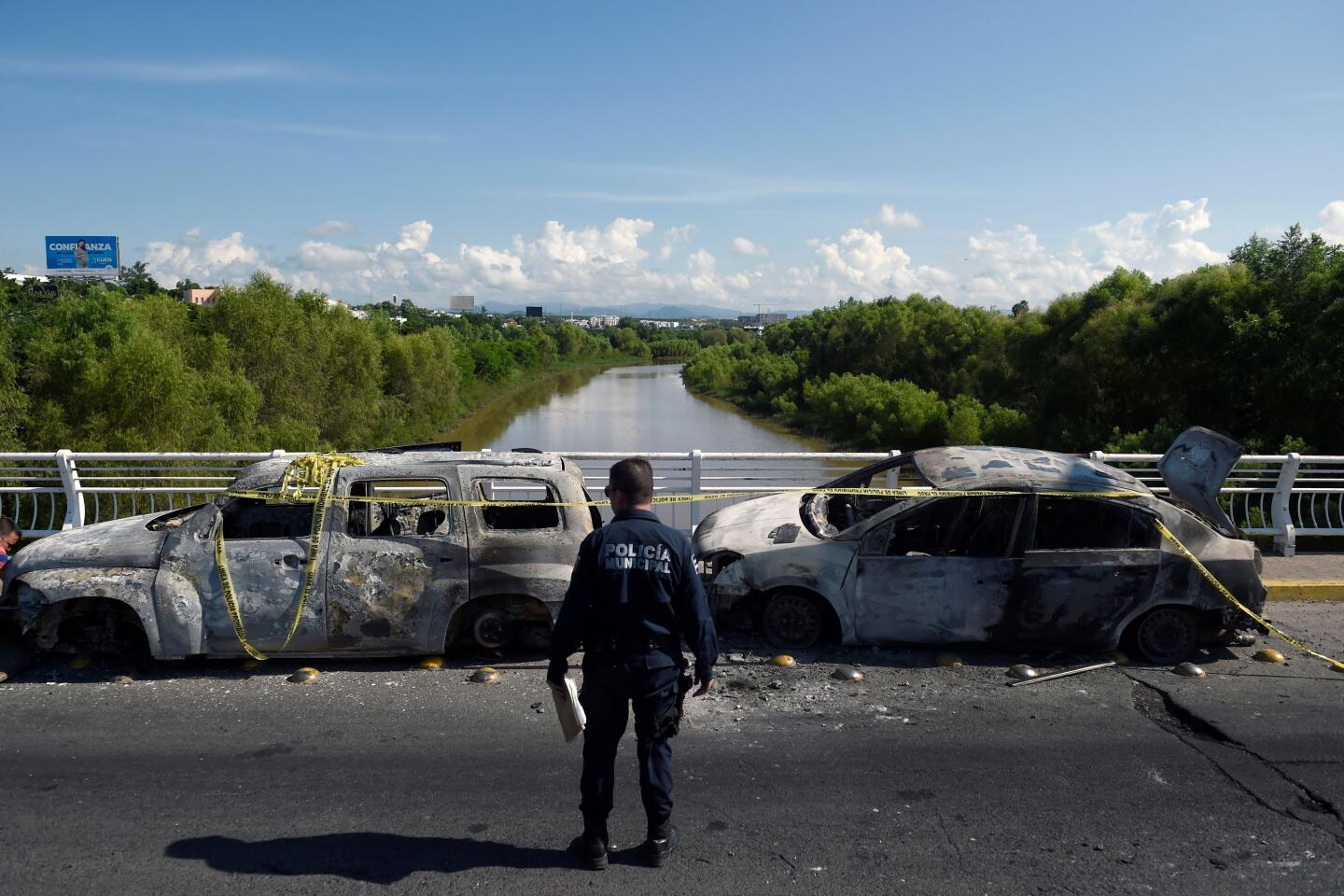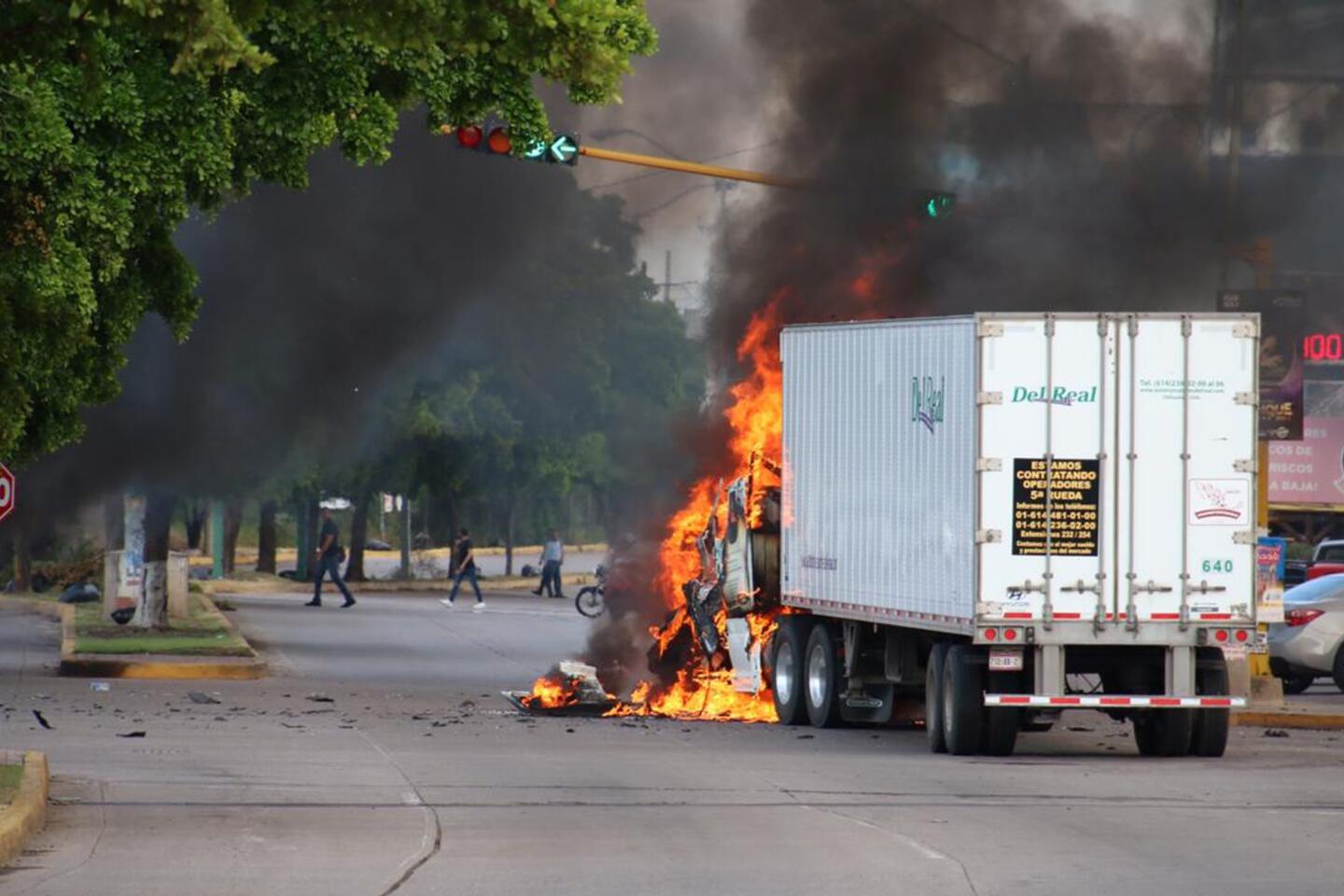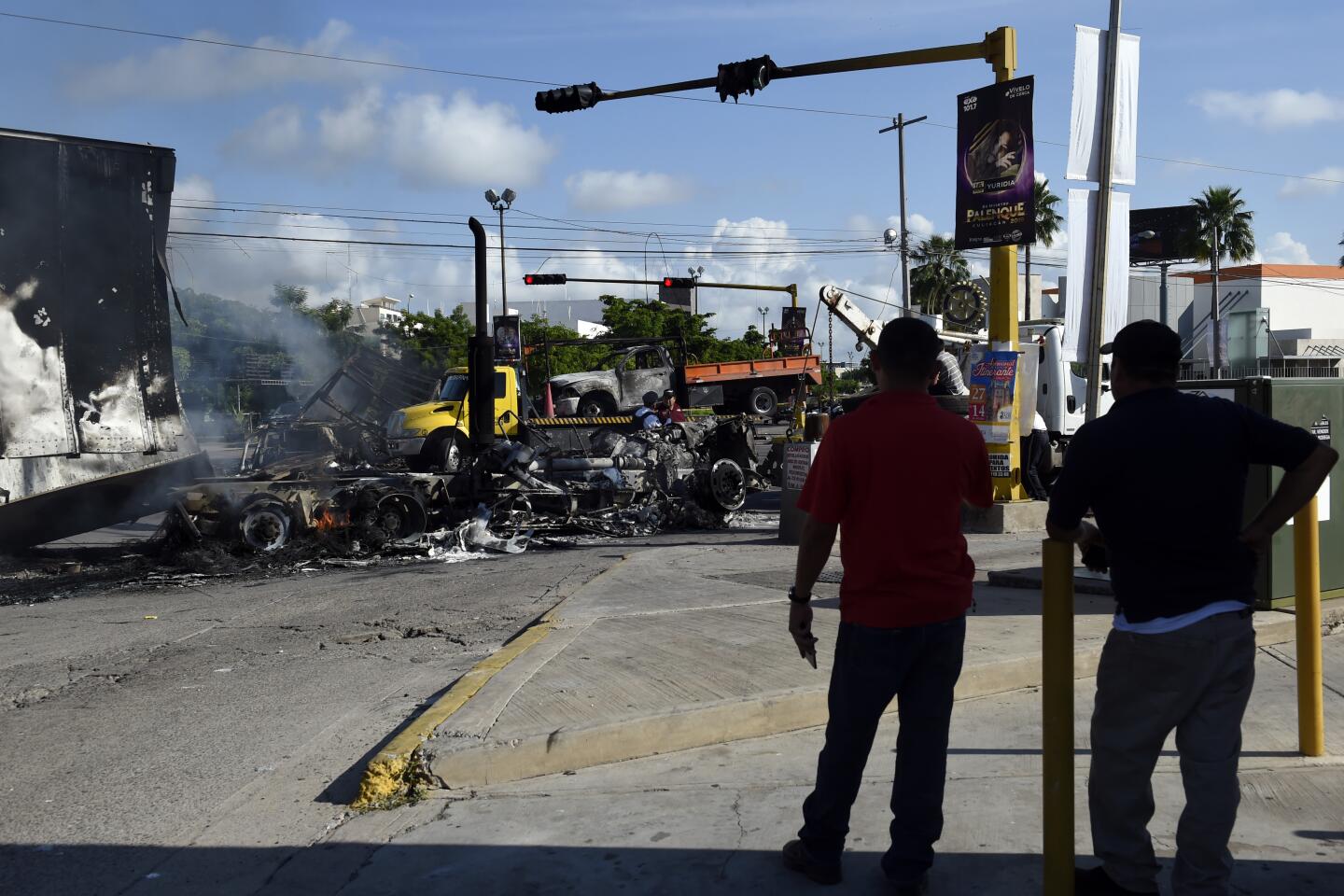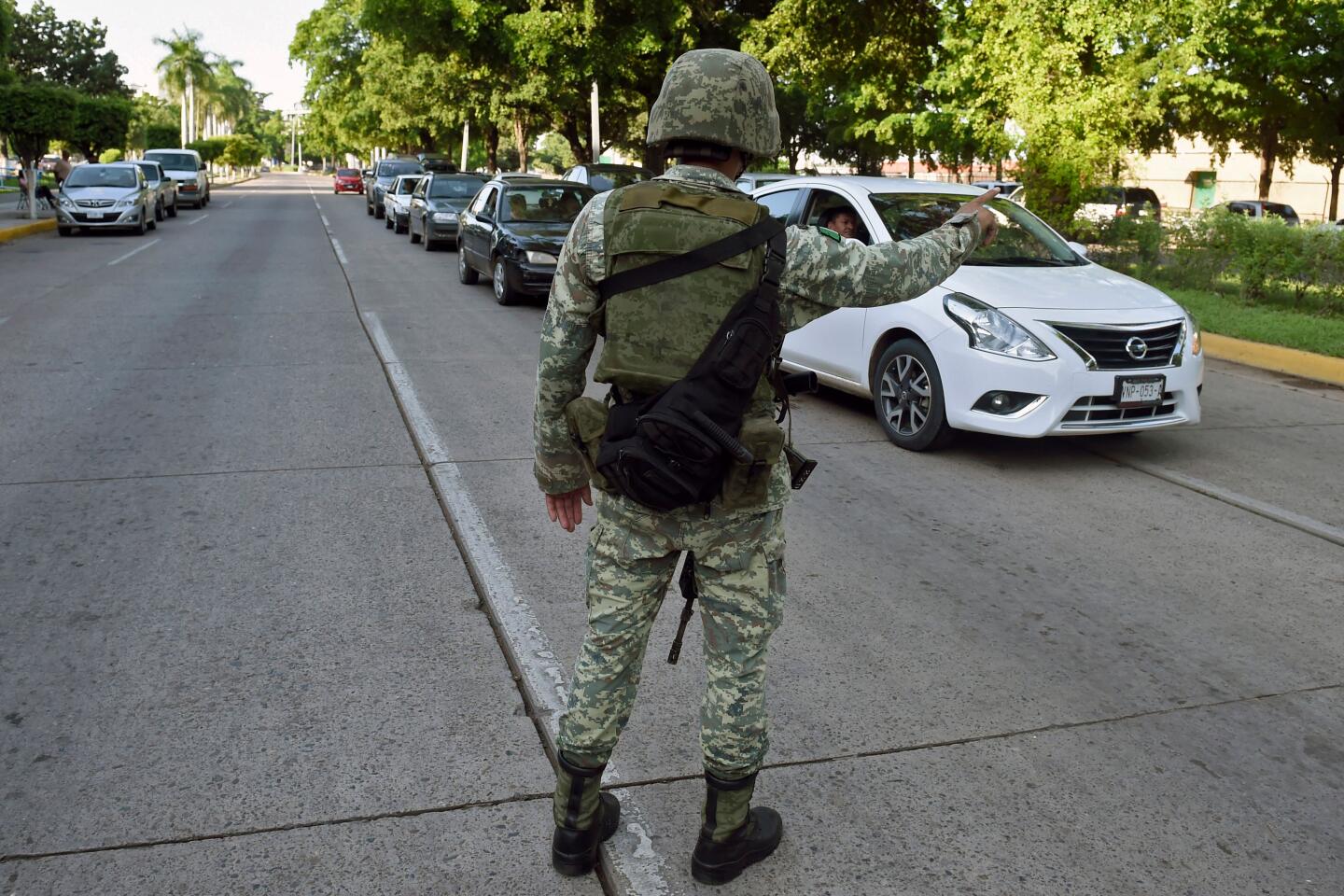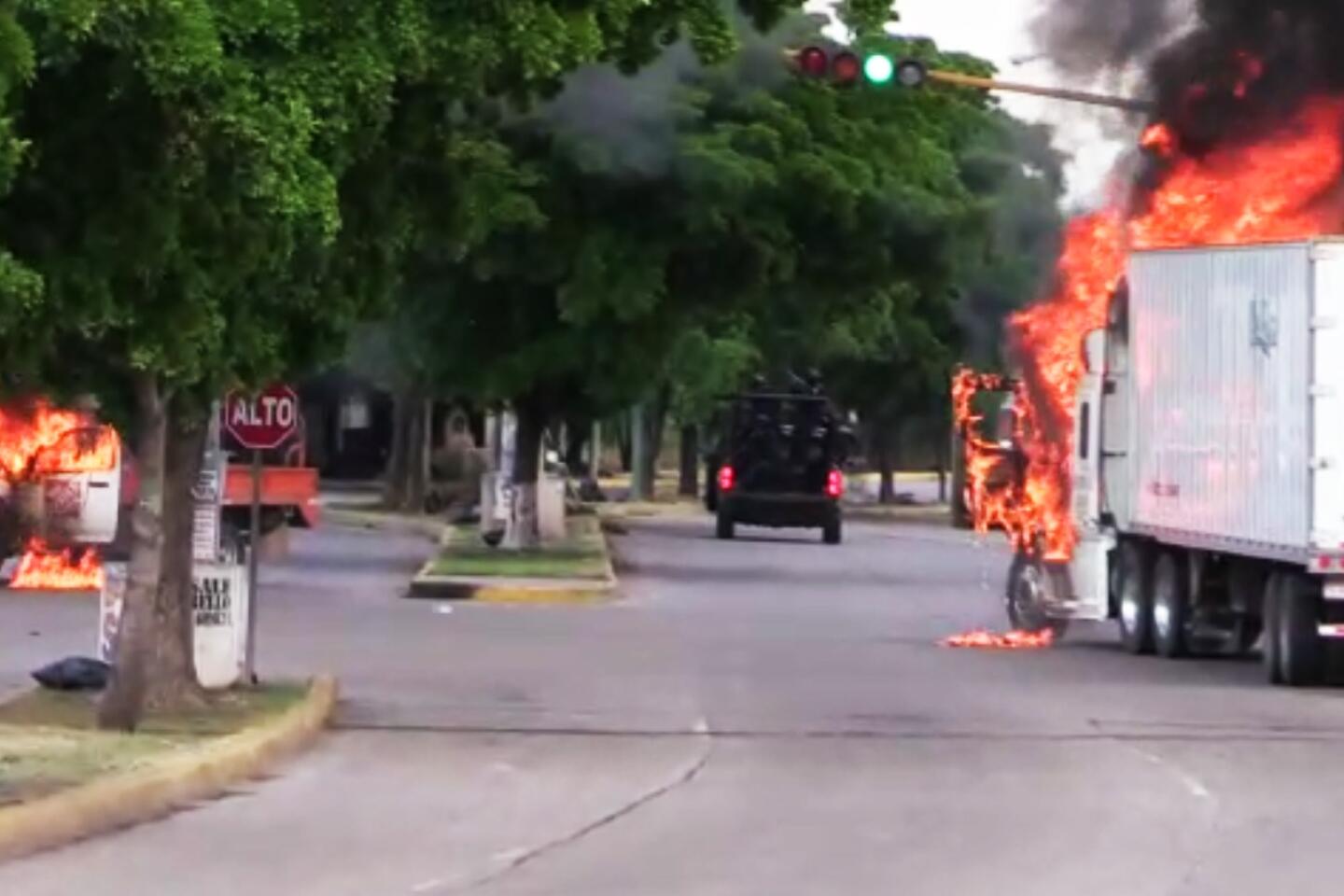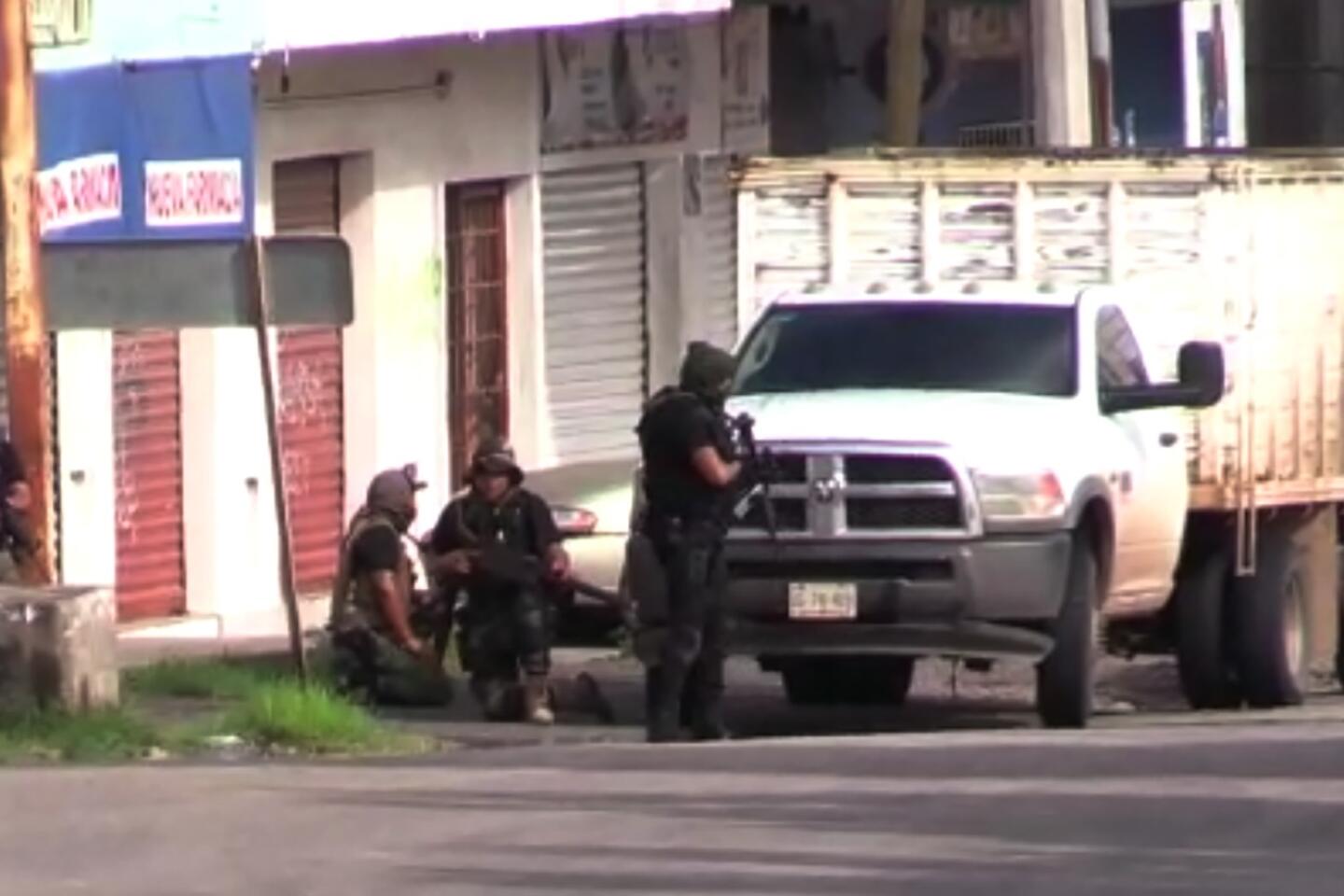Eight killed in Mexico as cartel gunmen force authorities to release El Chapo’s son
MEXICO CITY — A daring operation to capture one of Mexico’s most powerful drug lords failed disastrously when armed cartel members launched a deadly counterattack, laying siege to the northern city of Culiacan and taking several security officers hostage.
Authorities on Thursday briefly detained Ovidio Guzman Lopez, a leader of the powerful Sinaloa cartel and the son of notorious drug boss Joaquin “El Chapo” Guzman. But they ultimately freed him and retreated, a move Mexico’s leaders defended as necessary to save lives.
At least eight people died in a series of gun battles across the city, including one civilian, one member of the National Guard and five attackers. At least 16 people were injured.
The cartel’s victory was a stunning humiliation for the Mexican government, which has struggled to quell growing violence across the country. On Monday, armed gunmen in Michoacan state ambushed and killed 14 police officers.
In a surreal turn of events that further shamed the government, lawyers for the Guzman family held a televised news conference Friday afternoon in which they thanked Mexican President Andres Manuel Lopez Obrador for freeing the cartel boss.
“We have a very humane and Christian president,” said one of the attorneys, Juan Pablo Badillo, praising him for acting “with great wisdom and justice.”
As anger flared over Thursday’s failed operation, officials insisted that the state did not collude with criminals and maintained its ability to confront organized crime.
“There is no pact with criminals ... there is no failed state,” said Mexican Security Secretary Alfonso Durazo. “There was a failed operation.”
At a news conference in Culiacan, he and other top security officials detailed how Mexican authorities came to find themselves so overpowered.
Defense Secretary Luis Cresencio Sandoval said members of the army and the newly formed National Guard were seeking to execute an extradition arrest warrant for Guzman that was issued by a federal judge in the United States.
Soldiers and guard members made the decision to pursue Guzman without authorization from their supervisors, he said. “The group responsible for this action, in eagerness to achieve positive results, acted in a hasty manner and with poor planning,” he said.
Events were set in motion about 2:45 p.m. Thursday, when a convoy of military vehicles carrying more than two dozen security agents arrived at a home in an upscale neighborhood where Guzman was staying, Durazo said.
They were fired upon, and authorities shot back, taking control of the house with the four occupants inside, including 28-year-old Guzman.
Moments later, Guzman’s defenders arrived and “surrounded the house with a greater force,” Durazo said.
It was then, apparently, that cartel gunmen took the federal officers hostage.
At the same time, other cartel gunmen dispersed throughout the city, blocking entrances to Culiacan with burning vehicles, attacking a state government building and freeing inmates from a local prison. They took control of highways throughout the state and threatened to kidnap anybody who dared to drive.
Panicked civilians caught in the crossfire took shelter wherever they could.
By 5:30 p.m., Mexico’s security cabinet members decided to call off the operation. Durazo said the decision was made “with the goal of safeguarding the well-being and tranquility of Culiacan.”

Lopez Obrador said Friday that he supported the move. “The capture of one criminal cannot be worth more than the lives of people,” he said. The armed response to the government operation had been “very violent” and put many lives at risk, he added.
But many Mexicans were horrified that federal troops had been so easily outmuscled.
“We lived through hell,” said one woman who spent five hours sheltering inside a Sam’s Club with her three children after gunmen opened fire on a nearby street. “The government surrendered, and we saw that the people who really control things here are the narcos,” she said.
The woman, who gave only her first name, Geraldine, said she was relieved when she heard that authorities had acquiesced to the cartel’s demands.
“As a mother, I felt relief,” she said. “I thought, now they will stop killing.”
Many were stunned by the speed and coordination with which the heavily armed gangsters took the streets.
Combatants seized and set fire to dozens of vehicles, while convoys of cartel pickup trucks patrolled the city center, at least one of them mounted with a .50-caliber machine gun.
In one video shared widely on social media, a group of men dressed in street clothes and bulletproof vests surrounds a group of uniformed soldiers who they had apparently subdued.
Everard Meade, a professor at the University of San Diego who studies violence and has worked extensively in Culiacan, said the video encapsulated fears about the government’s impotence.
“You have the Mexican army with all this tactical gear, and then dozens and dozens of these young guys just surrounding and taunting them in the light of day,” he said. “That’s an image that will stick with people.”
Meade described Thursday’s violence as a sad regression for Culiacan, which is a rare part of the country where violence had actually been diminishing.
The decline can be traced to the work of civil society, he said, but also the Sinaloa cartel’s near-complete control of the city. Violence in Mexico tends to escalate when criminal groups are competing for territory.
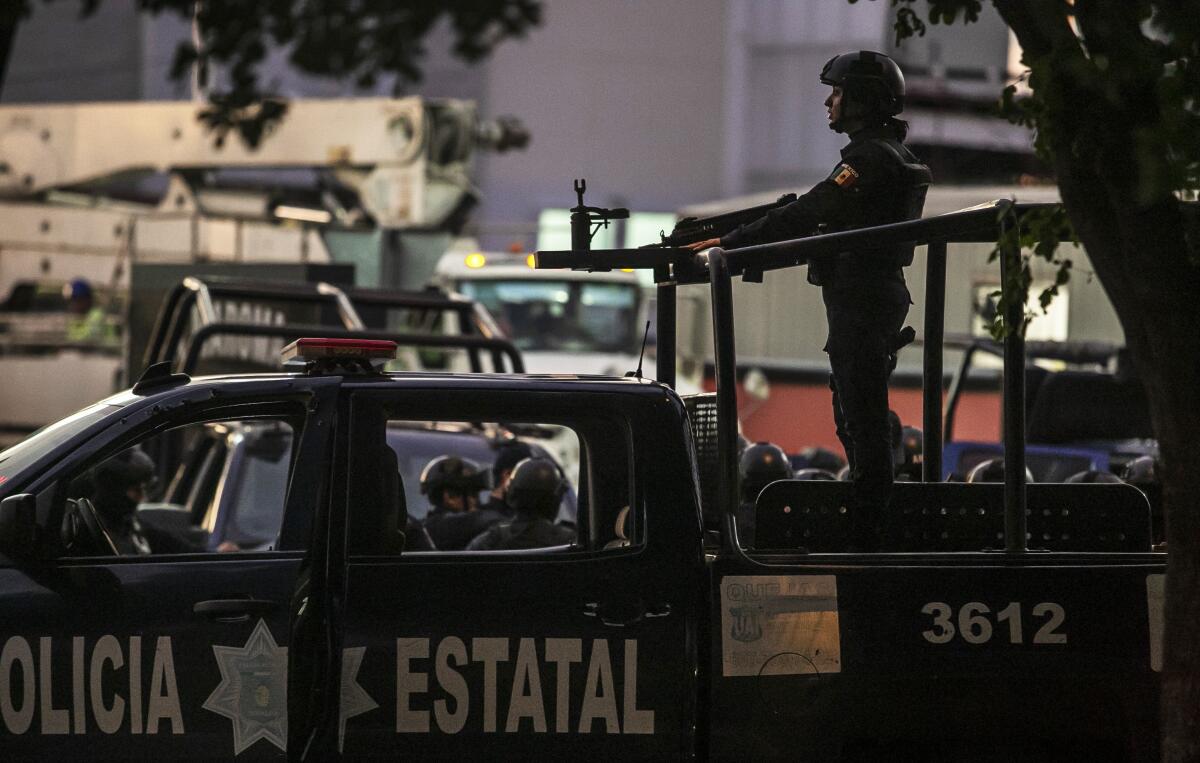
Thursday’s events further demonstrated the Guzman family’s flair for dramatic escapes.
Joaquin Guzman escaped from Mexican prisons twice — once through a mile-long tunnel connected to the shower in his cell.
In 2017, the elder Guzman was extradited to the U.S., and this year he was sentenced to life in prison on drug trafficking and conspiracy charges.
Ovidio Guzman and his older brother, Ivan Archivaldo Guzman Salazar, have controlled the group since then, along with Ismael “El Mayo” Zambada, a co-founder of the cartel.
The brothers and Zambada had conflicts last year, but they seemed to have resolved those differences. The cartel appears as profitable as ever, in part from an expansion in the production and trafficking of lucrative synthetic drugs such as methamphetamine and fentanyl.
Gun battles have been uncommon as of late in Culiacan, a prosperous city home to dozens of car dealerships and upscale shopping malls. Two times this year, a week has passed without a single killing in the city, Meade said.
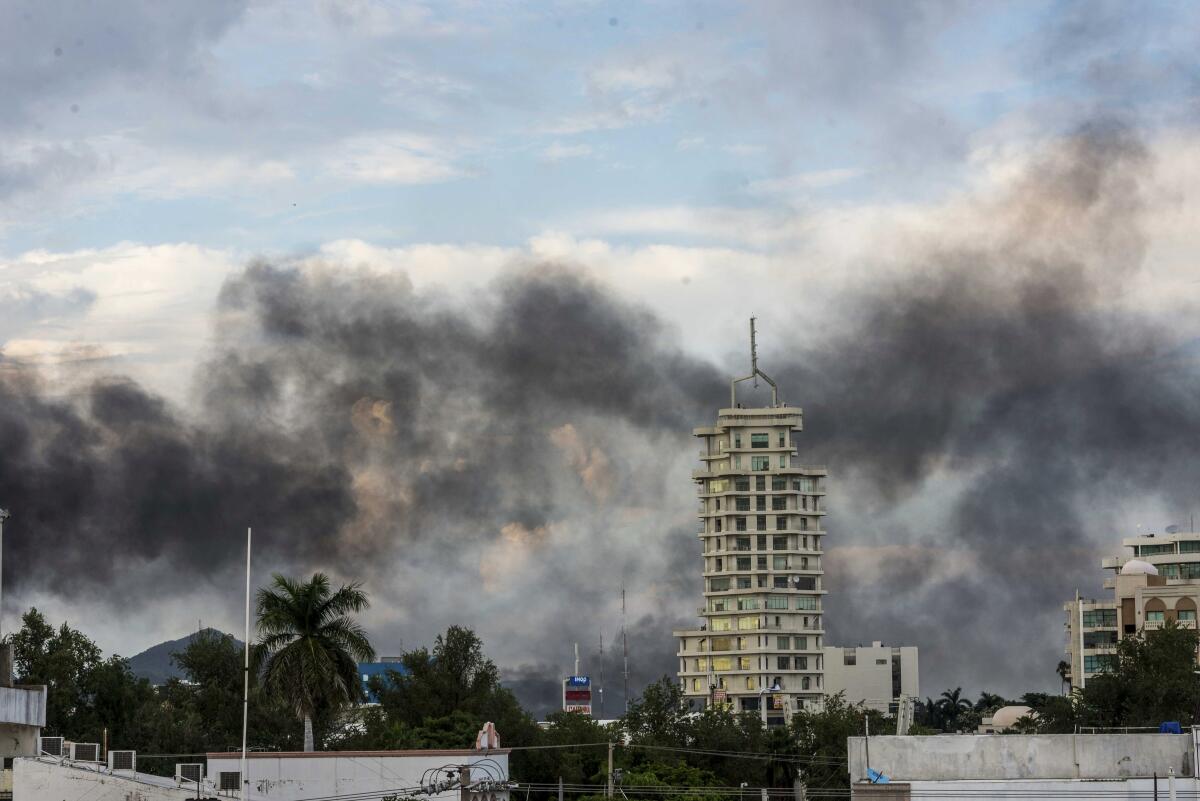
Sinaloa has faced challenges in other parts of the country from the ascendant Jalisco New Generation cartel, which has a history of openly confronting the government.
The cartel is suspected in the killing of the 14 police officers Monday in Michoacan.
Falko Ernst, a Mexico researcher with the nonprofit International Crisis Group, said the chaos in Culiacan “sets a highly dangerous precedent.”
“The message is: The Mexican government is not in control, and it can be successfully blackmailed,” he said.
He said all eyes will now be on Lopez Obrador, who has frequently criticized the militarized approach of his predecessors to law enforcement, even while continuing to employ many of their same tactics.
“This is an extremely critical moment,” Ernst said. “If the government does not define a sound reaction to this, this might trigger imitations by others.”
More to Read
Sign up for Essential California
The most important California stories and recommendations in your inbox every morning.
You may occasionally receive promotional content from the Los Angeles Times.
